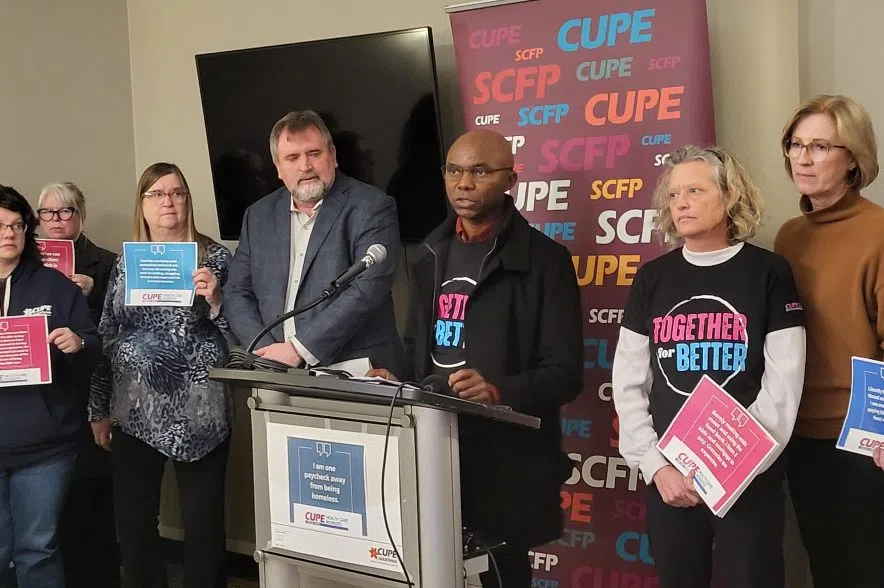Public health workers are struggling to get by, according to a report by the Canadian Union of Public Employees.
That’s why the union is calling for higher wages and better working conditions.
On Wednesday, the public sector union released a survey called “From Pay Cheque to Pay Cheque,” detailing struggles of Saskatchewan health-care workers as they try to contend with the rising cost of living.
CUPE 5430 represents more than 13,000 members working for the Saskatchewan Health Authority (SHA).
The report said that from March 2013 to March 2023, the Saskatchewan Consumer Price Index rose by 27 per cent — nearly double the compound increase that CUPE workers received over the same time span (14 per cent).
“We are struggling as health-care workers. The general public is struggling …,” Bashir Jalloh, president of CUPE 5430, told reporters.
“If we get a better raise, it will be a rippling effect. When we have success at our bargaining table it could be contagious for other people who are currently bargaining for the general public.”
The survey was launched online in November and was completed by 1,985 CUPE members: 74 per cent worked full-time, 20 per cent worked part-time, 15 per cent worked relief and three per cent were temporary.
Some of the findings from the survey include:
- 86 per cent of respondents said they’ve cut back on their grocery budget to make ends meet
- 84 per cent have cut back on leisure activities or hobbies
- 77 per cent said they delayed a major purchase
- 73 per cent say they’ve cancelled or scaled back their vacation plans.
- 70 per cent said their household finances were either poor (54 per cent) or very poor (16 per cent)
The report also said that 55 per cent of respondents couldn’t manage unexpected expenses.
CUPE argued that a substantial boost in wages would also help the province with recruiting and retention.
“The root cause of the challenges we are having today, the government would like us to believe that it’s as a result of COVID but that is not true,” Jalloh said.
“The staffing problem we’re having today we’ve been having way before COVID. And what did COVID do? COVID exacerbated it.”
Jalloh said short-term measures implemented by the government such as sending people to Alberta for care were insufficient.
“They have a list of criteria. I actually look at it to be a two-tier system. For example, if you have high blood pressure, you have diabetes and you (need to have knee surgery), you are going to be prevented from going to Alberta,” Jalloh said.
“How is that good for the citizens of this province? We can’t have a two-tiered health-care system.”
Jalloh called the province’s approach to health care “reactive” and said it was untenable to continue things as they are.
The collective agreement between CUPE and the Saskatchewan Association of Health Organizations (SAHO) – which represents the SHA during negotiations – expired on March 31, 2023. The bargaining process for a new deal began in September of last year.
980 CJME reached out to SAHO for comment but didn’t hear back by the time of publication.







